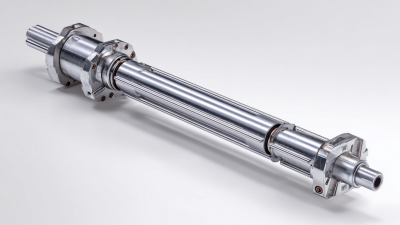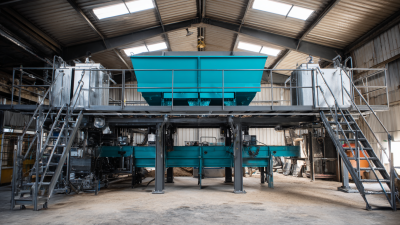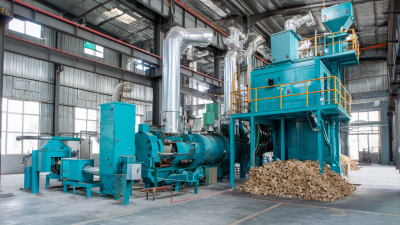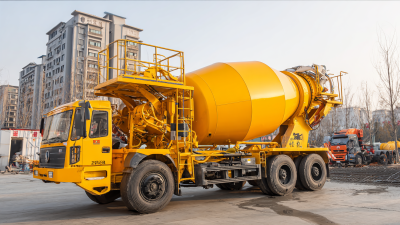Revolutionizing Production: How 'Die For Manufacturing' Is Shaping the Future of Industry
Table of Contents
- Understanding 'Die For Manufacturing' and its Role in Modern Production Techniques
- The Impact of 'Die For Manufacturing' on Industry Efficiency and Cost Reduction
- Innovative Technologies Driving 'Die For Manufacturing' Forward
- Real-World Applications of 'Die For Manufacturing' in Various Sectors
- Challenges and Opportunities in Implementing 'Die For Manufacturing' Strategies
- Future Trends: What Lies Ahead for 'Die For Manufacturing' in the Industry
- FAQS
- Conclusion
- Related Posts
The manufacturing industry is undergoing a transformative shift, greatly influenced by advanced technologies and innovative processes, particularly in the realm of 'Die For Manufacturing'. This paradigm not only enhances production efficiency but also significantly reduces material waste, aligning with the global push towards sustainability. According to a report by MarketsandMarkets, the die casting market is expected to reach USD 84.29 billion by 2026, reflecting the growing importance of precision and flexibility in production techniques.

Shanghai Zhengyi Machinery Engineering Technology Manufacturing Co., Ltd. (CPSHZY), with over 25 years of expertise, is at the forefront of this revolution, specializing in feed processing machinery and large-scale production of pellet mill dies. By developing environmentally sustainable systems and solutions for feed plants and aquaculture farms, CPSHZY is not only contributing to industry efficiency but also supporting ecological preservation in manufacturing processes.
The integration of 'Die For Manufacturing' principles signifies a promising future, undoubtedly reshaping the standards of the industry.
Understanding 'Die For Manufacturing' and its Role in Modern Production Techniques
'Die For Manufacturing' is transforming modern production techniques by integrating advanced materials and processes that enhance durability and efficiency in manufacturing. This approach is particularly significant in industries like feed processing, where precision and quality directly affect productivity.
For over 25 years, Shanghai Zhengyi Machinery Engineering Technology Manufacturing Co., Ltd. has been at the forefront of this revolution, specializing in the manufacturing of pellet mill dies. These essential components not only streamline production but also reduce waste, aligning with contemporary environmental standards.
Tip: When selecting die components, consider the material's compatibility with the feed type to maximize longevity and efficiency.
In addition to providing high-quality die manufacturing, CPSHZY offers comprehensive environmental protection systems designed for feed plants and aquaculture farms. These solutions aim to minimize the ecological footprint of production processes, showcasing the company's commitment to sustainable practices. As industries evolve, the adoption of 'Die For Manufacturing' principles will play a crucial role in meeting both production demands and environmental responsibilities.
Tip: Implementing eco-friendly practices in production can lead to significant cost savings and enhance your company's reputation in the marketplace.
The Impact of 'Die For Manufacturing' on Industry Efficiency and Cost Reduction
In recent years, the adoption of "Die For Manufacturing" (DFM) processes has been a game changer for the manufacturing sector, significantly enhancing operational efficiency and reducing costs.
According to a report by McKinsey, industries implementing DFM principles have seen operational efficiencies increase by up to 30%.
This reduction in waste, improved cycle times, and the ability to leverage advanced materials have streamlined production workflows, enabling manufacturers to respond more swiftly to market demands.
Moreover, a study by Deloitte highlighted that DFM practices could lead to cost reductions of approximately 20% through optimized resource utilization and improved product designs.
By embedding manufacturability considerations during the design phase, companies not only avoid costly modifications later in the process but also enhance product reliability.
As the industry continues to embrace these innovative strategies, the long-term benefits of DFM are becoming increasingly evident, solidifying its role in shaping a more efficient and cost-effective future for manufacturing.
Innovative Technologies Driving 'Die For Manufacturing' Forward
The concept of "Die For Manufacturing" is revolutionizing production by leveraging innovative technologies that enhance efficiency and precision in the manufacturing process. Among these technologies, additive manufacturing, automation, and advanced materials play pivotal roles. Additive manufacturing, or 3D printing, allows for rapid prototyping and the creation of complex geometries, reducing the need for traditional die manufacturing. Meanwhile, automation streamlines operations, minimizes human error, and improves consistency in production.
**Tips:** When integrating these innovative technologies, consider adopting a phased approach. Start with pilot projects to assess the impact on your production line, and ensure all team members are trained to adapt smoothly to new systems.
Advanced materials, such as lightweight composites and smart alloys, are also at the forefront of this transformation. They offer enhanced durability and can be tailored to specific applications, contributing to leaner manufacturing processes. The combination of these technologies not only optimizes output but also supports sustainable production practices.
**Tips:** Stay informed about the latest advancements in materials science. Collaborating with research institutions can provide access to cutting-edge materials that can significantly enhance your manufacturing capabilities.
Revolutionizing Production: 'Die For Manufacturing' Trends
This chart illustrates the rapid growth of various innovative technologies driving the 'Die For Manufacturing' forward in the industry. The data represents the estimated adoption rate of these technologies over the past five years.
Real-World Applications of 'Die For Manufacturing' in Various Sectors
The ‘Die For Manufacturing’ approach is paving the way for transformative applications across various industries. With advancements in artificial intelligence, manufacturing processes are becoming more efficient and precise. For instance, in sectors such as food production and drug discovery, AI algorithms are optimizing resource allocation and enhancing product quality. This integration also finds applications in feed processing, where companies like Shanghai Zhengyi Machinery Engineering Technology Manufacturing Co., Ltd. are leading the way in producing high-quality pellet mill dies and environmental solutions, thus promoting sustainability.
Tip: Businesses aiming to implement ‘Die For Manufacturing’ should consider utilizing AI-driven analytics to monitor production workflows for improvements in efficiency and accuracy. Embracing Industry 4.0 technologies can create a more resilient supply chain, thus fostering innovation and sustainability.
Furthermore, the Internet of Things (IoT) is revolutionizing production practices by enabling real-time data collection and analysis. This technology allows manufacturers to monitor equipment health, optimize maintenance schedules, and reduce downtime. As industries continue to leverage these advancements, the future of manufacturing looks more adaptable and sustainable, fueled by continuous innovation.
Tip: Incorporating IoT devices into your production line can significantly enhance operational visibility. Regularly analyze the data collected to identify trends and areas for improvement, ensuring that your manufacturing processes remain competitive.

Challenges and Opportunities in Implementing 'Die For Manufacturing' Strategies
The concept of 'Die For Manufacturing' is gradually transforming the industrial landscape, presenting both challenges and opportunities for businesses. As specialized manufacturers like Shanghai Zhengyi Machinery Engineering Technology Manufacturing Co., Ltd. continue to innovate feed processing technologies, the strategic implementation of this framework could significantly enhance production efficiency. According to a report by MarketsandMarkets, the global die casting market is projected to reach $84.2 billion by 2027, highlighting the growing importance of optimized manufacturing processes in meeting demand.
One of the major challenges in adopting 'Die For Manufacturing' strategies is the need for investment in advanced technology and training. Companies must gauge their current capabilities while incorporating new manufacturing strategies that require not only an upskilled workforce but also robust supply chain management. Emphasizing collaboration among departments can mitigate these hurdles effectively.
**Tip:** To successfully implement 'Die For Manufacturing', companies should conduct a thorough analysis of their production workflows and identify areas where automation can yield significant improvements.
Additionally, the adoption of environmental protection systems alongside these strategies can provide a competitive edge. As the focus on sustainability intensifies, integrating environmentally-friendly practices in die manufacturing processes can enhance brand reputation and appeal to eco-conscious consumers.
**Tip:** Engage with suppliers who prioritize sustainable materials and processes to strengthen your commitment to environmental protection while leveraging new manufacturing techniques.
Revolutionizing Production: How 'Die For Manufacturing' Is Shaping the Future of Industry - Challenges and Opportunities in Implementing 'Die For Manufacturing' Strategies
| Dimension | Description | Challenges | Opportunities |
|---|---|---|---|
| Cost Efficiency | Improving production costs through optimized die designs. | High initial investment for tooling. | Long-term savings in production processes. |
| Quality Improvement | Enhancing product quality via precision engineering. | Need for skilled labor and training. | Increased customer satisfaction and brand loyalty. |
| Technology Integration | Adopting advanced technologies like CAD/CAM. | Resistance to change from traditional methods. | Enhanced design flexibility and innovation. |
| Sustainability | Minimizing waste through efficient die production. | Regulatory compliance and environmental impact assessments. | Improved brand reputation and market competitiveness. |
| Lead Time Reduction | Shortening the time from design to production. | Coordination issues across teams. | Faster response to market demands. |
Future Trends: What Lies Ahead for 'Die For Manufacturing' in the Industry
The landscape of manufacturing is undergoing a significant transformation with the advent of 'Die For Manufacturing' (DFM) approaches. According to a report by MarketsandMarkets, the global die casting market is expected to grow from $70 billion in 2021 to $94 billion by 2026, reflecting a compound annual growth rate (CAGR) of 6.3%. This growth is fueled by advancements in automation and material science, as industries seek to enhance efficiency and minimize waste. DFM processes are becoming instrumental in streamlining production, allowing for rapid prototyping and reduced time-to-market for new products.

Looking ahead, trends suggest that DFM will increasingly integrate with Industry 4.0 technologies. A study by Deloitte highlights that 80% of manufacturers are planning to invest in smart technologies, such as AI and IoT, to optimize manufacturing processes. This convergence of DFM and digital transformation not only promises to improve precision and reduce operational costs but also fosters innovation in product design and manufacturing techniques. As industries embrace these trends, DFM is set to play a pivotal role in shaping the future of production, thereby revolutionizing how goods are designed and manufactured across various sectors.
FAQS
: 'Die For Manufacturing' is a revolutionary approach that enhances durability and efficiency in manufacturing processes, significantly affecting industries like feed processing by improving precision and quality.
Shanghai Zhengyi Machinery has been a leader in this field for over 25 years, specializing in manufacturing pellet mill dies that streamline production and reduce waste while adhering to environmental standards.
Companies should select die components based on the material's compatibility with the feed type to maximize the lifespan and efficiency of their manufacturing processes.
Innovative technologies such as additive manufacturing (3D printing), automation, and advanced materials are integral to enhancing efficiency and precision in manufacturing.
Implementing eco-friendly practices can lead to significant cost savings and improve a company's reputation in the marketplace by appealing to environmentally conscious consumers.
Challenges include the need for investment in advanced technology, workforce training, and maintaining robust supply chain management.
Emphasizing collaboration helps mitigate challenges by promoting efficient communication and coordination, ultimately enhancing overall production effectiveness.
The global die casting market is projected to reach $84.2 billion by 2027, highlighting the significance of optimized manufacturing processes in meeting industry demands.
Companies can enhance sustainability by adopting environmental protection systems and collaborating with suppliers who prioritize sustainable materials and processes.
A phased approach that starts with pilot projects should be adopted to assess impacts on production, ensuring that all employees are adequately trained to navigate new systems.
Conclusion
The concept of "Die For Manufacturing" is transforming modern production techniques by enhancing efficiency and reducing costs across various industries. This approach integrates innovative technologies that streamline production processes, leading to significant advancements in manufacturing capabilities. Companies like Shanghai Zhengyi Machinery Engineering Technology Manufacturing Co., Ltd. have been at the forefront of this revolution, specializing in the production of pellet mill dies and environmental protection solutions for feed processing.
As the "Die For Manufacturing" strategy continues to gain traction, it presents both challenges and opportunities for implementation across different sectors. Future trends indicate a growing reliance on this method to maximize productivity and sustainability in manufacturing operations. By leveraging these advancements, businesses can position themselves for success in an ever-evolving industrial landscape.
Related Posts
-

Drum Mixer Shaft: A Comprehensive Comparison of Materials and Designs for Optimal Performance
-

How to Maximize Profitability with Broiler Feed Making Machine Techniques
-

How to Choose the Right Feed Block Making Machine for Your Farm Needs
-

Solutions for Efficient Pellet Production with Advanced Pellet Mill Machines
-

5 Best Animal Feed Making Machines with Over 90 Percent Efficiency Ratings
-

Essential Guide to Maximizing Efficiency with Vertical Shaft Cement Mixers Checklist
Blog Tags:

